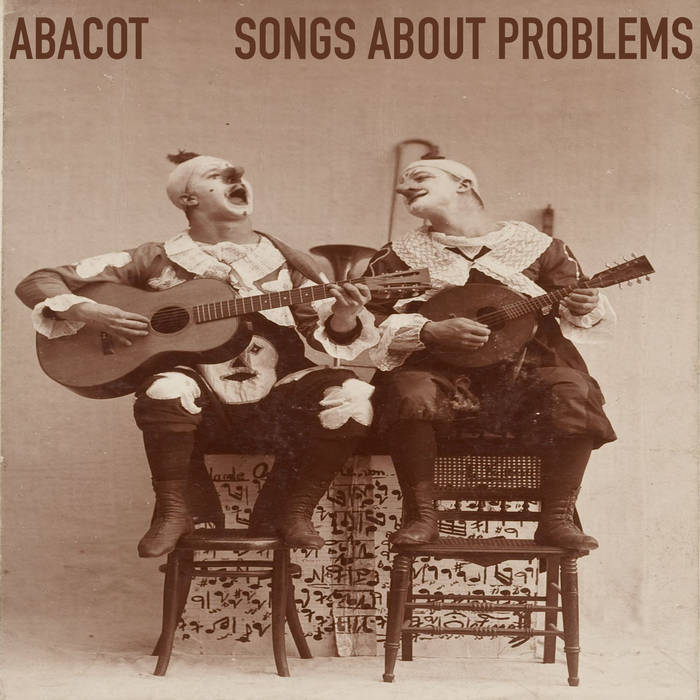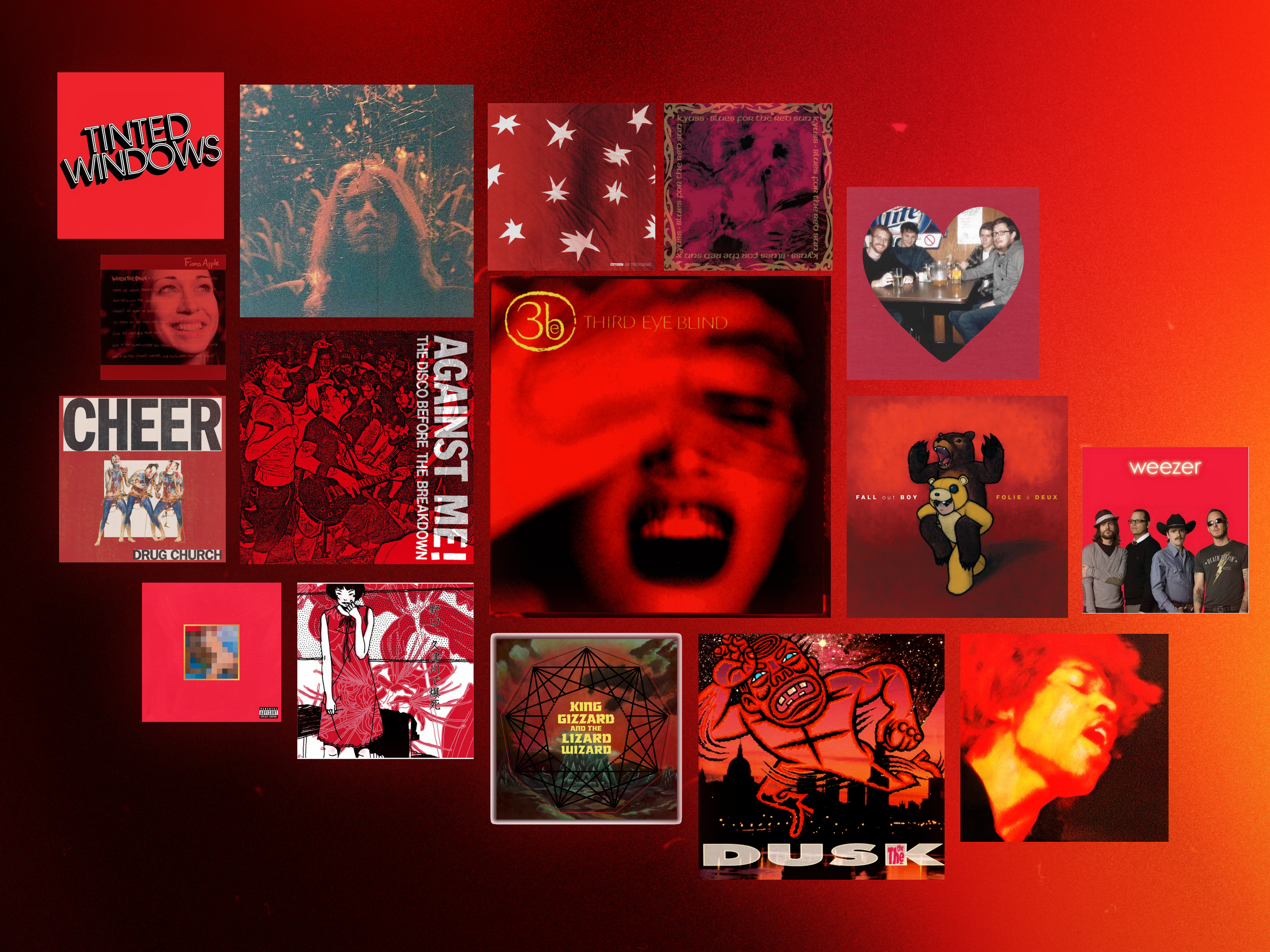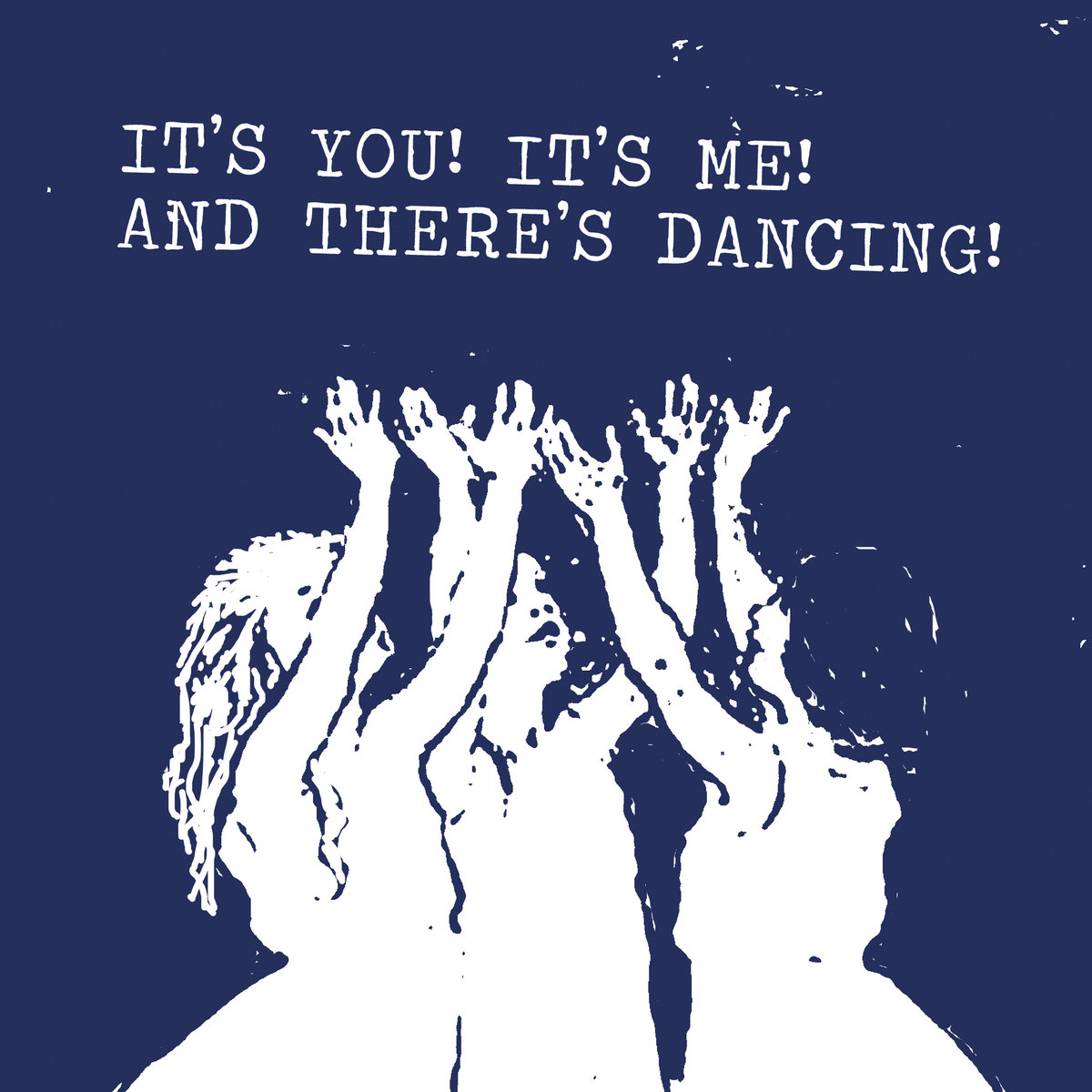The Stark Maximalism of Sufjan Stevens
/Sufjan Stevens is an enigma. He is reclusive (aside from the occasional Tumblr post, interview, or Oscar performance), and didn’t even perform publicly once last year. His song titles contain more punctuation than a Steven King novel, and the man has released over one-hundred Christmas songs (a feat that we’re dedicated to covering in-full over on our sister site). His discography his one of the best in folk music ranging from soft, stark acoustic on Seven Swans, lush multi-instrumental fanfare on Illinois, and electronic bombast on The Age of Adz. While he initially made a name for himself with a far-fetched promise to record an album about all 50 states, it quickly became clear that his artistry and vision exceeded the need for any gimmicks. That’s about as broad of a career-overview as I can fit into an introductory paragraph, but the important thing to note for this piece is that the record he released in 2015, Carrie & Lowell, might be the collection of songs that end up defining his career.
Worryingly for fans, Sufjan’s albums seem to be getting fewer and farther between. Carrie & Lowell is now five years old, and it’s still the last studio album from the folk hero; however, that doesn’t mean he’s been any less productive. In the past few years, he’s mostly relegated himself to singles and side-projects alongside conducting, producing, and soundtracking. Even before this five-year gap between records, Sufjan had seemed increasingly uninterested in (and discouraged by) the album format. Before Carrie & Lowell his last album was 2010’s Adz, and his last proper record before that was 2005’s Illinois. There were plenty of B-sides, art installations, EPs, ballets, and avant-garde diversions in between all that, so it’s fair to say that Sufjan is a weird mix of precious and prolific.
Sufjan is also an artist who’s talented enough to have released several career-defining albums. If you were to ask a fan what their favorite Sufjan album was, you’re likely to get a different answer based on who you talk to. I’m a Michigan man myself, but Carrie & Lowell is a close second. And while Carrie & Lowell may be only one of two records that Sufjan released in the past ten years, there’s no doubt in my mind that it’s one of the best albums of the decade, and I’m about to tell you why.
2010’s Age of Adz represented something of an end for Sufjan Stevens. Apart from his inclinations away from the album format, that record saw Sufjan blowing up his entire persona, sound, and musical foundation into something entirely unexpected and extraordinary. It was the album-equivalent of ego death. He eased listeners in with a familiar acoustic guitar on “Futile Devices,” but then turned everything on its head with electronic drums, angry frustrations, and cinematic builds the likes of which fans had never before seen. The album concludes with the 25-minute “Impossible Soul,” a breathtaking multi-part musical odyssey that retroactively feels like a career-ending period mark.
So where did he have left to go after such an upending work of art? It turns out that the answer was nowhere. Sufjan essentially went into hiding for a few years aside from a second collection of Christmas songs which he bound together in 2012 thanks to his label Asthmatic Kitty. He toured on that album for one festive holiday season (fittingly long-windedly-titled "Surfjohn Stevens Christmas Sing-A-Long: Seasonal Affective Disorder Yuletide Disaster Pageant on Ice"), then fell off the face of the earth.
Sometime after that tour, Sufjan Steven’s mother passed away.
Sufjan had a strained relationship with his mother. She was the topic of songs like “Romulus,” and (by contrast) “Decatur, or, Round of Applause for Your Stepmother!” The rough story as presented in “Romulus” is this; Sufjan’s parents got a divorce when he was still a child. His mother moved from Michigan to Oregon and the kids visited her every summer. Sufjan depicts his mother as selfish, uncaring, and something that he felt ‘ashamed’ of. She battled addiction, depression, and schizophrenia, and was generally shown in his music to be an unfit parent. Despite all this, when your mother dies, she’s still your mother, and it still hurts.
Her death is the event that sparked Carrie & Lowell’s creation. As a result, it’s an expectedly dark, slow, and sad record… and that’s putting it lightly. Carrie & Lowell is a morbid piece of art, a fantastic character study, and an absolutely beautiful reflection on love and mortality. If you haven’t listened to it yet, now is the time to close this tab, turn off the lights, and listen to the record on your nicest pair of headphones.
When Carrie & Lowell released on March 31st of 2015, it was met with widespread critical acclaim. Aside from the notable context in which it was created, a new Sufjan Stevens record felt like an event worth celebrating. The album represented a sonic return to form for Sufjan, most reminiscent of his early-career acoustic work like Seven Swans and some of the more restrained tracks on Michigan. While critical praise is no consolation prize for a dead parent, it felt like with Carrie & Lowell Sufjan finally became a household name.
As the full gravity of the record’s lyrics and context began to set in over the first few weeks of its release, Carrie & Lowell almost had a delayed reaction as fans started to recognize the scope and weight of the feelings contained within it. I may just be speaking for myself, but distinctly I recall listening to the album a few times before the words really began to land. It wasn’t until I sat down for a handful of close listens that I grew to understand the severity of the emotions contained within the record. Carrie & Lowell wasn’t just another Sufjan record. It wasn’t Illinois, it wasn’t Adz, and it definitely wasn’t Songs for Christmas, this was something different entirely. Carrie & Lowell is one of the rare albums that sounds sad and also has the weight to back it up. It’s not sad for sadness’ sake. There’s plenty of sad music, and there’s plenty of folk music, but there are very few records like this.
Album opener “Death With Dignity” sets the tone immediately with a soft, finger-plucked banjo and morbid song title referencing Oregon’s assisted suicide law. Sufjan enters soon after with a soft whispered voice sounding more lost than ever as he sings, “Spirit of my silence, I can hear you / But I’m afraid to be near you / And I don’t know where to begin.” The track ends with a minute of haunting, ghost-like hums that reverberate around the speakers, solidifying the album’s mood for the remaining 39-minutes.
“Should Have Known Better” is the closest thing the record has to a “catchy” song, placed second in the tracklist presumably to soften the blow of the opening track while also prepping the listener for what’s to come. This song introduces us to the record’s cast of characters, and it’s setting; Sufjan’s mom, brother, and extended family are all represented as well as the state of Oregon. Sufjan’s mom, Carrie, is introduced as a troubled character, establishing her with an anecdote about a time that she forgot Sufjan and his brother at the video store as a child. “When I was three, three, maybe four / She left us at that video store / Oh, be my rest, be my fantasy.” Here he depicts just one instance of her bad parenting, but also follows is up with conflicted feelings of missing her now that she’s gone.
“Should Have Known Better” ends with a message of hope as Sufjan contrasts this recent loss with a new ray of hope as he sings, “My brother had a daughter (brother had a daughter) / The beauty that she brings, illumination (illumination).” Clinging on to this one shred of optimism, Sufjan sends the listener off to wade through the darkness on the rest of the album. Now we know the stakes, we know the players, and we know how it ends. All that’s left is to fill in the blanks.
From there, the album spans from love songs on “All of Me Wants All of You” to childhood flashbacks on “Eugene.” Sufjan walks the listener through the stages of grief on “Drawn to the Blood,” and with each track, he takes the listener further down the rabbit hole of loss and confusion that comes in the wake of a loved one’s death. Each song adds another layer onto the relationship between himself and his mother, which sets us up for the heartbreaking depiction of her death beginning on the second side of the record.
Sufjan captures death rawly on “Fourth of July” as he finds himself by his mother’s bedside during her final moments. First, Sufjan sets the scene by establishing his mother’s declining health with beautiful yet pained language. “The evil, it spread like a fever ahead / It was night when you died, my firefly.” From there, he replays a conversation with each stanza trading off between the two of them. The language used is loving and forthright as his dying mother asks, “Did you get enough love, my little dove? / Why do you cry?” elaborating, “And I’m sorry I left, but it was for the best / Though it never felt right / My little Versailles.”
The use of loving pet names is punctuated immediately by post-death logistics as the hospital begins asking Sufjan about how the family would like to bury the body. This gut-punch leads to one final chorus that builds to a climactic chant of “We’re all gonna die,” which is repeated until the song fades out into darkness. It’s sublime.
From that point onward the record shows Sufjan dealing with his mother’s death on “The Only Thing,” flashes back to his childhood once more on “Carrie & Lowell,” and gives a glimpse of hope in the form of love and religion on my personal favorite “John My Beloved.” These songs bear soft acoustic guitar, careful banjo plucks, subtle electronic elements, and creaking piano, creating one continuity of emotion that flows smoothly from one song to the next.
Penultimate “No Shade in the Shadow of the Cross” finds Sufjan at his most self-destructive, turning to substances and self-harm in the wake of his mother’s passing. Finally, album closer “Blue Bucket of Gold” is a piano-led lamentation that finds Sufjan reaching out to friends, family, and God for support. The song ends with a meditative swirl of electronics that overwhelms the senses and commandeers the track. Of this song, Sufjan explained in an interview:
“I didn’t know (my mom) well in a lot of ways, and I didn’t know how to say goodbye on the last track with articulation. So I quit playing piano and vocals and just stopped. I wanted to surrender her to the beyond with noises that sound bigger than just me.”
So that was Carrie & Lowell; 43 minutes of heartache, confusion, loss, and sadness. It’s not a fun listen, but very few albums capture such sadness in such an open way. From then on, Sufjan let us sit with the record, and that was the last we heard from him until 2017, which is when he began adding more pieces to his creation. It was at this point that he turned Carrie & Lowell from a masterpiece into a complete body of work and one of the most definitive statements that any artist has ever made.
Carrie & Lowell may not seem like an album most artists would tour off of; the songs are slow, sad, and minimalistic, not exactly befitting of a large-scale theater. But Sufjan Stevens is not most artists. Sufjan took Carrie & Lowell on the road in 2015 and performed the songs as reimagined for the big stage. The tracks turned from somber reflections of death into meditative statements on life. He performed with a full band, adorned the stage with colorful lights, and donned his iconic baseball hat for months of legendary performances throughout 2015 and 2016. The songs were built out with added drums, background vocalists, and keyboards. Tracks were punctuated by ethereal electronic swirls that allowed the audience to marinate on the performance as it unfolded. Each night was capped off with either “Chicago” or a cover of Drake’s “Hotline Bling,” perhaps to lighten the mood and ease the audiences out of the death-obsessed world of Carrie & Lowell and back into reality.
A 2015 performance in South Carolina was filmed and released to the public as a standalone album in 2017, two years after Carrie & Lowell first landed. With the performance immortalized on Carrie & Lowell Live, Sufjan took the quiet meditative nature of the original record and turned in into a maximalist reflection on death and life. The songs were the same as they were before, but now re-ordered and re-created from the ground-up so that they shine in a completely different light.
Performing career-spanning tracks like “Redford” and “Vesuvius,” these songs fit in perfectly alongside the core album’s tracklist, further fleshing out the story of Carrie & Lowell and making the five-year gap between the seemingly distant Age of Adz feel seamless. “All of Me Wants All of You” trades Sufjan’s acoustic guitar out for an entirely-electronic soundscape that erupts in a fantastic explosion of psychedelic dance music. If you were to play the live songs side by side with their original you’d hardly be able able to tell they were the same if it weren’t for the lyrics. Similarly, “Fourth of July” is blown out into a seven-minute epic that retains the original’s guitar and piano but culminates in an extended repetition of “We’re all gonna die” over pulsating synths and a rolling drum solo. Even the pensive “John My Beloved” begins with the same familiar piano but eventually adds drums and guitar that gradually build up to a near-post-rock climax. Perhaps most notably, album closer “Blue Bucket of Gold” is followed by a 13-minute wall of ambient electronic music, lending further credence to the Sufjan quote above, leaving audiences no choice but to ruminate and surrender to the beyond, if only for a scant few minutes.
With this live performance, Sufjan gave the tracks on Carrie & Lowell a new life outside of their original context. It’s one thing to perform such a personal and dark album before hundreds of people, but it’s an artistic achievement to change them so significantly and still have them work to the same end. Carrie & Lowell Live stands as an additional support piece to the original record’s greatness, proving that it can work in different contexts and on different scales. It’s great not just because the songs are great, but because it reimagines them entirely. With this performance, Sufjan took the emotion and story of Carrie & Lowell and pushed the maximalist slider all the way up.
The other achievement of this record is that it takes all of Sufjan’s seemingly-disparate musical phases and makes them all work under one unified sound. The live performance takes the songwriting of Carrie & Lowell and touches it up with the electronic embellishments of Adz and the instrumentation of Michigan. It elevates not just the original record, but his entire discography.
On April 28th, the same day as the release of Carrie & Lowell Live, Asthmatic Kitty announced The Greatest Gift, an album that collected the outtakes, remixes, and demos from Carrie & Lowell all on one LP. Much like the preceding live album, The Greatest Gift further elevated the original record by adding an additional layer of context and emotional complexity, this time in the opposite tonal direction.
As mentioned above, there are three core categories under which the songs on The Greatest Gift fall. First are outtakes. These are songs like “City of Roses,” “Wallowa Lake Monster,” and “The Hidden River of My Life.” These songs fit tonally into Carrie & Lowell, but focus more on building the backdrop of the album as opposed to detailing its central players. Each song name-drops iconic Oregon locations and attractions, these three outtakes (along with “The Greatest Gift”) flesh out the world of Carrie & Lowell primarily through embellishments to the surrounding environment more than anything vital to the story.
The remixes contained on the album aren’t your standard EDM-fueled fare, but instead opt for adding subtle electronic elements that add to the atmosphere of the original songs. The first remix of “Drawn to the Blood” is helmed by Sufjan himself, editing his own song to sound like an Adz bonus track. Hidalgo Negro remixes both “Death With Dignity” and “All of Me Wants All of You” with swirling electronic additions that make it sound as if you’re underwater or floating in space. The incomparable Doveman remixes “Exploding Whale,” initially a loosie, which now finds a home here as yet another Oregon reference. Finally, 900X remixes “Fourth of July,” pulling the song apart piece by piece and reconstructing it into a cathartic seven-minute electronic build that makes expert use of the song’s white space, giving the lyrics ample time to breathe.
Where The Greatest Gift shines, most surprisingly, are its demo tracks. In these songs, we catch a glimpse of the most raw version of Carrie & Lowell in existence. “Drawn to the Blood” receives a “fingerpicking remix” that swaps the rapidly-strummed guitar of the original for a carefully-finger plucked version that sounds a touch more produced, à la “Mystery of Love.” Most notably, “John My Beloved” and “Carrie & Lovell” are denoted with “iPhone Demo,” painting a picture of Sufjan recording his thoughts, feelings, and grief directly into his phone somewhere that studio equipment was all too far away.
These demos are haunting and breathtaking. Recorded in complete isolation, they feature rough-around-the-edges guitar playing and soft, whispered vocals (even more so than usual). These songs feel remarkably “of the moment,” as if inspiration struck, and Sufjan recorded them on the spot in a bout of stream-of-consciousness. These demos capture the emotion and environment so wholly; you can hear the room tone, the creaking of a chair, and the rattling of the guitar strings. It’s Sufjan in an unpolished and lo-fi setting that most fans have never heard before. The demos take the sadness and starkness of the original album versions and amplifies them as far as humanly bearable. It’s an even more accurate portrayal of grief and loss if only because they sound that much more raw and sorrowful.
This collection of songs, particularly the demos, add yet another layer onto Carrie & Lowell, showing an alternative reality version of this album that was just Sufjan alone in his room recording his feelings into an iPhone and releasing it out into the world. You know the songs are great because they still work, even in this context. While Carrie & Lowell Live portrayed the album at its most expansive and maximalist, The Greatest Gift shows the album at its most inward and minimalist. These two releases work in tandem with the original record to elevate the songs and portray Sufjan’s strength as a songwriter and musician.
On top of these three full-length releases, 2017 also saw the release of Tonya Harding, a single loosely inspired by I, Tonya in which Sufjan recounts the now-infamous tale of the figure skater (and Oregonian) Tonya Harding. That single felt like a leftover song from a reality where Sufjan actually carried out his Oregon album the same way that Illinois had a song about John Wayne Gacy and featured Lincoln and Superman on the gatefold. Additionally, 2015’s “Blue Bucket of Gold (Remix)” offers an alternate ending to Carrie & Lowell that, much like the live rendition, sends the listener off with a disorienting whir of electronics, amplifying what was already on the album by tenfold.
Through these loose singles and the more Oregon-focused outtakes on The Greatest Gift, Sufjan also presented fans with an alternate reality where Carrie & Lowell was merely another album in the 50 States Project covering the fanciful characters and locations of the Pacific Northwest. Simply put, this makes Carrie & Lowell one of the most flexible, fascinating, and diverse releases that Sufjan has ever created.
There you have it. One record, one live album, a collection of outtakes, remixes, and demos that add up to a collective 3+ hour listen that I like to call the Definitive Carrie & Lowell.
With this series of releases, Sufjan Stevens was able to not only craft a masterful and career-defining record, but he was also able to build upon it, flesh it out, and create around it in a way that I’ve seen no other artist do. Together these albums paint a wondrous portrayal of life, love, and loss. Carrie & Lowell is the type of record that only comes around once in a generation, and we’re lucky that Sufjan lent his voice and artistry to depicting such a painful and challenging topic. In immortalizing the passing of his mother and everything that came in its wake, Sufjan created a definitive statement on loss that will live on through the ages. He memorialized his mother in an honest way that made death real, impactful, beautiful, and comforting. I can’t think of a better legacy than that.












